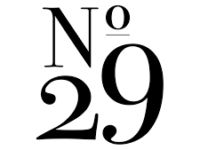Tasha D (preferred not to disclose full name) was formerly employed as a Business Manager (BM) for a human resource department of a major non –profit organization. Amongst other duties, Tasha was responsible for time keeping and payroll, purchasing, processing new hires and terminations and was involved in budgeting and determining salary and wages. Tasha has over 8 years of business management experience. The following is from an interview with Tasha, in which – based on her experience as a BM, she shares insight, advice and tips about salary and wages that can prove useful to employers and aspiring entrepreneurs.
Determining Salary and Wages:
In Tasha’s experience salary and wages are determined based on a number of factors; average salary for title/position within the industry, level of skills and knowledge required- including level of education, and level/years of experience. Tasha indicated although former salary is often requested on a job application, in her experience it is rarely considered in determining salary and is asked to assess whether or not former positon is in line with average salary, and if candidate knows their worth (know what they should be paid). Likewise, a request for “desired salary” is asked for the same reasons. Tasha’s experience in determining “fair” salary and wages involved use of a weighed system. Tasha indicated, each position had a salary range. Where a candidate placed within the range was determined by how factors (requirements) were met.
TIP/ADVICE: Clearly define what salary and wages will be based on. Use a scale that is based on level of skill/experience/performance/knowledge to weigh and adjust salary/wages.
Determining Salary and Wages– Paying Correctly & Fairly:
Tasha suggest completing an internet search to determine the average salary or wage for a position/title, but not to stop here. Tasha advises identify the skills, experience and knowledge required for a position/title and weigh /compare the skills, experience and knowledge of the candidate with the needs of your business.
TIP/ADVICE: Ensure pay is in- line with minimum wage law and if applicable, Collective Bargaining Agreement(CBA) and Article of Incorporation(AOI). Tasha warned, an employee can view a CBA or AOI to determine if their being paid correctly. Tasha stated salary and wages are listed in collective bargaining agreements and CBA’s can be found through a simple internet search, for example- typing “xyz collective bargaining agreement” in a search engine. Also, Article of Incorporation may list salaries and can be obtain by contacting the Secretary of State office, where the article was formed.
Determining Salary and Wages- Increases:
In Tasha experience, salary/wage increase were often administered for three reason: required by company’s policy or union, evaluation and assessment, and/or retention.
TIP/ADVICE: Stay on top of company’s policy and procedures, and labor laws as it relates to salary/wages increase. Determine if increase is required by company’s rules/CBA/ AOI and local/federal labor law. Aside from required increase(s), use evaluations/assessment of performance when determining increase, if any. If company completes evaluation/assessment of performance, find out if an increase is required once a certain level of performance or score is reached. Have a system in place to handle request for salary increase. Ensure the requestor can demonstrate why they should receive or is entitled to receive the increase. For example, meeting or surpassing the require duties, completing additional task, being paid less than what is listed/ required for the position.


